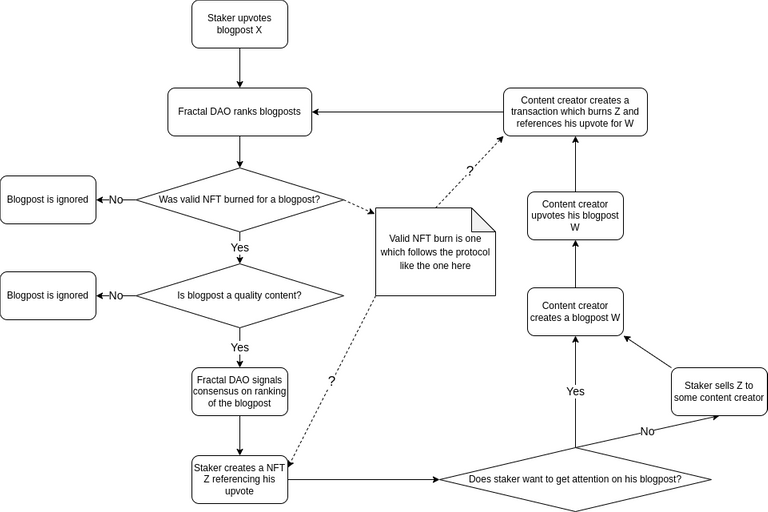Every dollar bill is unique. And yet we treat them as fungible. Every bitcoin is associated with a unique unspent-transaction-output - every bitcoin is effectively unique. Yet we treat it as fungible as well. These are just a couple of examples of how unique tokens are turned into fungible tokens simply by society having consensus to treat them that way.
A key to making non-fungible token fungible is function/utility. If a set of NFTs has the same utility (and the same amount of that utility), then people will be incentivized to start trading that set of NFTs as if their individual units were fungible. It does not even matter who is the issuer of NFTs in that set. People only need to be clear on what properties NFT has to satisfy in order to be treated as having utility and be interchangeable with other NFTs in the same set.
To create a fungible token you don't need an issuer. You only need a protocol that anyone can follow to issue NFTs that can become part of the fungible token set.
This reveals the power of human consensus. A community that is able to reach consensus on the set of NFTs it respects and provides utility for, creates a fertile ground for ecosystem to create a fungible token for them (by treating their respected NFTs as fungible). Effectively you have a fungible token, with an unlimited amount of independent issuers. This is another level of decentralization.
Example: content ranking for a social network platform like Hive
Let's say you have a community of people who read articles on Hive and meet periodically (every day or every week) to reach consensus on the rankings of the posts they read. They publish their consensus publicly. This is a public good since this can help determine high-quality content on Hive. Let's call this community a "content ranking fractal".
How do these people decide what posts to read and rank? It's impossible for them to do this for all the posts on the platform. This question is critical if we want to make sure that rankings by this group are respected. Ideally, they should not be biased or collude with content creators when ranking posts.
It seems fair for this "content ranking fractal" to give attention to those content creators who deserve it. It's up to a fractal to decide who deserves it. What about Hive token-holders who help curate content on Hive by upvoting the same posts that this "content ranking fractal" ranks? They help implement the public good in the eyes of a fractal, so they should deserve a reward in the eyes of a fractal. And the reward this fractal can provide is attention (which can turn into being ranked by the fractal). If these upvoters do not need attention themselves they should be able to trade their right to attention to content creators that do.
So the idea goes like this. Fractal members look for NFT burn operations on some NFT platform, where NFT burned has an attribute referencing Hive transaction that upvoted the post that fractal approved. It should also be checked that the upvoter and creator of that NFT are the same party (or that the upvoter authorizes NFT creator) and that NFT for that upvote was not yet created. Additionally, the NFT burn transaction should reference another post on Hive - this is a signal that attention on this particular post is requested in exchange for the burn.
So you have upvoters on Hive, which upvote posts that fractal ranks. They create NFTs that reference transactions on Hive, which prove this. They can sell these NFTs to content creators, which utilize them to request their posts to be ranked.
To start this, all you need is one content creator finding attention from fractal valuable, and demand for these NFTs is created. Once there's at least a little bit of demand for these NFTs, there will be an incentive to be the upvoter that upvotes posts that fractal approves. Upvotes on these posts in turn mean Hive platform rewards for the creators of these posts.

Of course, fractal should not rank any posts which are spam or otherwise low-quality content, even if someone burned an NFT for it. Therefore there should be no hard promises made by a fractal - they should prove themselves by setting a precedent of reacting fairly to requests for attention. For example, if there's at least some quality to the content (it is not spam) it should get ranked even if ranking is low. For posts that are not spam a clear and public protocol should be followed for prioritizing posts for which NFTs are burned.
A lot of details still have to be worked out in the above example:
- How posts are prioritized;
- How much utility (attention) is each NFT worth;
- Structure of these kinds of fractal meetings;
- Etc...
But I think the idea of growing fungible tokens organically by providing utility to certain NFTs has a lot of potential and is worthy of further research. Besides the fact that it enables a fungible token, with totally decentralized issuance, it can:
- help reward fractal members (fractal members can be posters and upvoters);
- help distribute inflation from the platforms like Hive more fairly;
- bring more attention to fractal governance (by actually providing real public good to other blockchains);
- Create incentive to participate in fractal meetings (if you don't like the results of fractal consensus - join the fractal and start influencing it);
In the example presented here, it would additionally help create a higher quality social network, but I think similar principles can be applied to reward voters in other blockchain governance mechanisms.